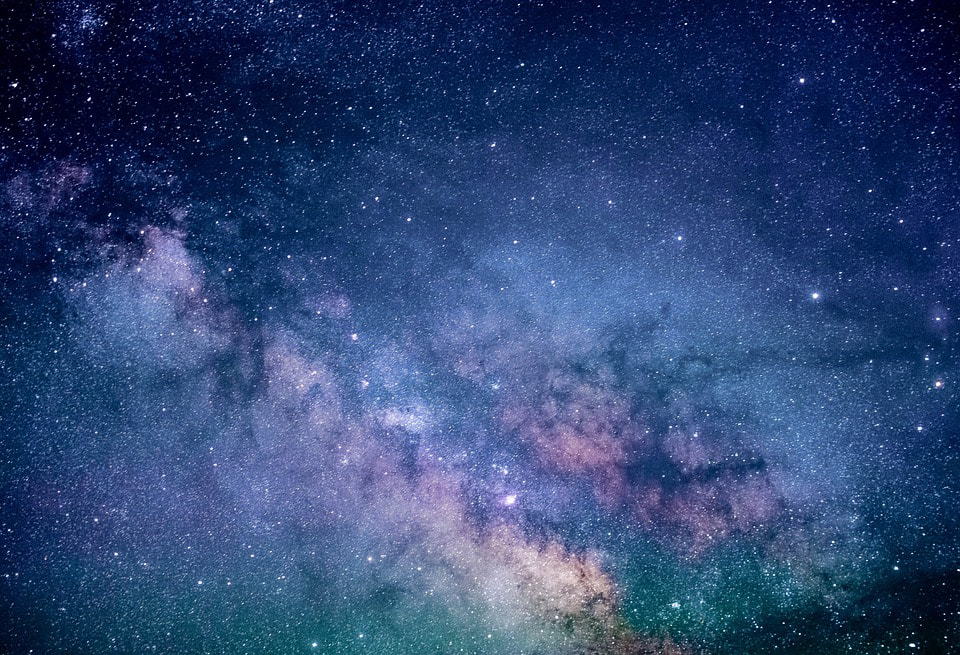|
By: B. Sapoznik When you look up in the night sky, what do you see? Maybe the moon, or some stars. If you’re lucky, a planet or another with a telescope. Or maybe nothing; just a simple black filling of the sky. Maybe an airplane, a helicopter, or a bird. We all know those things or at least kind of know. But how much out there and in here do we know? Outside, where our footprint has not carved shape on the soil. Inside, where our branded, electric rockets leave the planet repeatedly. Actually… how much do we know?
You probably think that we know almost nothing, that the universe is so vast and diverse that our knowledge is immeasurable compared to the amount of unprocessed information out there. Well, there is no true answer. We humans do know a significant amount. Reasonably, we know some elements. Ultimately, we know what makes them up. We know enough numbers, formulas, theorems, and instruments to calculate exact measurements. We know how to build, and how the cells inside of us are constantly building and reforming our bodies. We know how to work with our hands and minds. How our hands can hold pens to write. How our minds can think freely. And then, later in the timeline, we discovered how to make it all easier. Machines. We built simple machines, from ones that aid communication to rockets to vacuum cleaners. We created many machines. They enhanced our knowledge; they made our lives much easier and exposed the practicality that life can be. And now we’re here. This is where we are. We know how to hunt, cook, savor, and ingest. We know how to produce, mass-produce, sell, and make money. We know how gravity works. So, we know practically everything about our planet, right? We have reached several milestones and achievements to perfect our understanding of things, in general. So, why don’t we find other species? Other places to live or other elements to make things even more practical? Well, this is when we realize we don’t know. Outside our blue and green orb, we don’t really know. We have ideas about our size, and about some other planets. Humans have calculated the number of light years to get to the nearest water planet. But we don’t have the light speed engine. We don’t really know anything. Or is what is on our planet everything? In that case, we know everything, we just haven’t discovered another loop of practicality for our lifestyles. This is the idea of the Great Filter. The great filter is supposed to be the classification or barrier of species into becoming galactic species. We didn’t find any life forms, so we might be past the filter. In that case, we have an extreme understanding of almost everything, causing us to be the most knowledgeable, or maybe the only knowledgeable in the galaxy. But of course, we’re probably before the filter. That there’s life out there that knows tenfold or a million times more than us. If we can’t reach other civilizations, then our limited knowledge will end in our understanding. In this case, we can’t evolve. In the timeline of the universe, our timeline ends. Our time ends. The constantly polluted atmosphere causes our species to die of one (of many) scenarios on Earth. Maybe the world will become too hot. Maybe our atmosphere will time out and become a blazing inferno. There’s no way to know. Which means there’s no way to know our position towards the Great Filter. In conclusion, knowledge is a relative thing in our gradient. We need more of it to know where we are on the spectrum. Think about it. The simplest of things that we learn from birth up to death. So many things to understand; and in the end, we don’t really know how much it is, and how much it isn’t. For more information on this topic, check out this video: “Why Alien Life Would be our Doom” – Kurzgesagt.
0 Comments
Leave a Reply. |
Categories
All
Archives
June 2024
|

